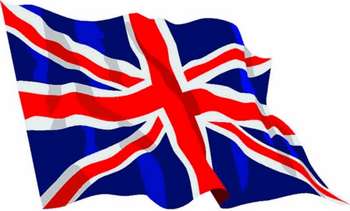How the UK is protecting kids from harmful pornographic content
 PornHarmsKids.org.au – Liz Walker 15 March 2017
PornHarmsKids.org.au – Liz Walker 15 March 2017
Family First Comment: The UK have already started the process of protecting young people…
“Challenges aside, doing nothing is a failure to exercise due diligence to protect children. It is only right that we demand higher standards for ISPs, tech and porn companies to implement technology-related child protection buffers to prevent exposure to harmful pornographic content.”
www.porninquiry.nz
At the Pornography and Harms to Children and Young People Symposium held in February 2016, Dr David Sandifer spoke on the UK model. It has been a lengthy process, but investigations by our Chair, Liz Walker, reveals that the UK has implemented some fantastic measures to keep kids safe.
In the UK, 95% of the market is held by the biggest ISPs. [1]
- Sky Broadband (the largest) applies ISP level filters (by default to subscribers)
- Parents can turn the filters off
- 70% have left the filter TURNED ON. This 70% corresponds with the number of families with children in the UK. The ‘70%’ is self-reported by Sky Broadband
- Each mobile phone number is an account in its own right (irrespective of the device or handset into which the SIM card is installed). Every account is assumed to belong to a child and therefore access to adult content is restricted unless and until the account holder completes an age verification procedure.
- ISPs: the “Big Four” ISPs all make filtering tools available to their domestic customers and they fund a public education initiative (which the BBC and Google have also joined). Learn more from OFCOM here and here.
- Digital Friendly WiFi set the safety standards for venues worldwide offering public WiFi
Further to these measures, the UK Digital Economy Bill is currently in Parliament. It has finished in the House of Commons. It is now in the House of Lords. It has a much broader scope than ISP filters:
“Make provision about electronic communications infrastructure and services; to provide for restricting access to online pornography; to make provision about protection of intellectual property in connection with electronic communications; to make provision about data-sharing; to make provision about functions of OFCOM in relation to the BBC; to provide for determination by the BBC of age-related TV licence fee concessions; to make provision about the regulation of direct marketing; to make other provision about OFCOM and its functions; to make provision about internet filters; to make provision about preventing or restricting the use of communication devices in connection with drug dealing offences; to make provision about payment systems and securities settlement systems; to make provision about qualifications in information technology; and for connected purposes.”
Embedded within the UK Digital Economy Bill is open communication and agreements between government and porn companies to implement age-verification processes. To maintain privacy, verification is to be carried out by a third-party. [1] It is even being reported in mainstream media that age-verification is something porn companies are supporting. Not surprisingly, their rationale relates to a clearly defined business model that hopes to increase profit margins by restricting access to minors.
Myths about child protection buffers
Often the argument against child protection buffers is that kids will find a way around it. This argument is no excuse – only a very small minority of 12-15s say they have disabled filters or parental controls. According to a report by OFCOM in November 2016, despite most children having information about staying safe online, a small number of 12- 15s say they are engaged in potentially risky online activities. They are marginally more likely than in 2015 to say they have deleted their history records (17% vs. 11%), amended the settings to use a web browser in privacy mode (10% vs. 6%) and disabled any filters or controls (3% vs. 1%). This means that 97% of kids don’t know how or have not bothered to disable filters.
The other strong argument against child protection buffers is that kids access to porn on their mobile devices. Following the approach taken in the UK, assuming the SIM belongs to a child alleviates this point of access.
The UK is being watched by the world as they implement measures that many people scoffed at and said were impossible. There is no doubt, significant challenges relating to social media sites that are also easy access points, and this plus other questions are currently being debated with the UK Digital Economy Bill. Rightly so, because like Australia, recorded cases of children committing sexual offences against other children has risen by almost 80%.
Challenges aside, doing nothing is a failure to exercise due diligence to protect children. It is only right that we demand higher standards for ISPs, tech and porn companies to implement technology-related child protection buffers to prevent exposure to harmful pornographic content.
Rather than allow conversations to be quickly shut down by very noisy and well-resourced entities whose best interests are in maintaining a profitable industry, we must act.
READ MORE: http://www.pornharmskids.org.au/uk_protecting_kids_from_harmful_content?utm_campaign=uk_model&utm_medium=email&utm_source=pornharmskids






